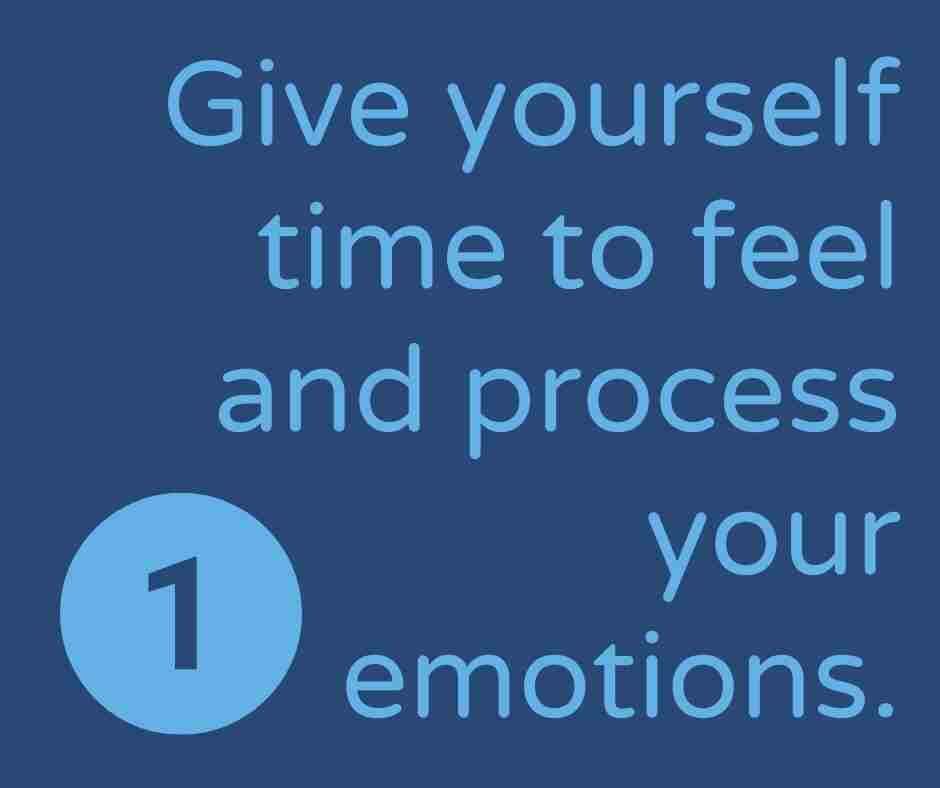
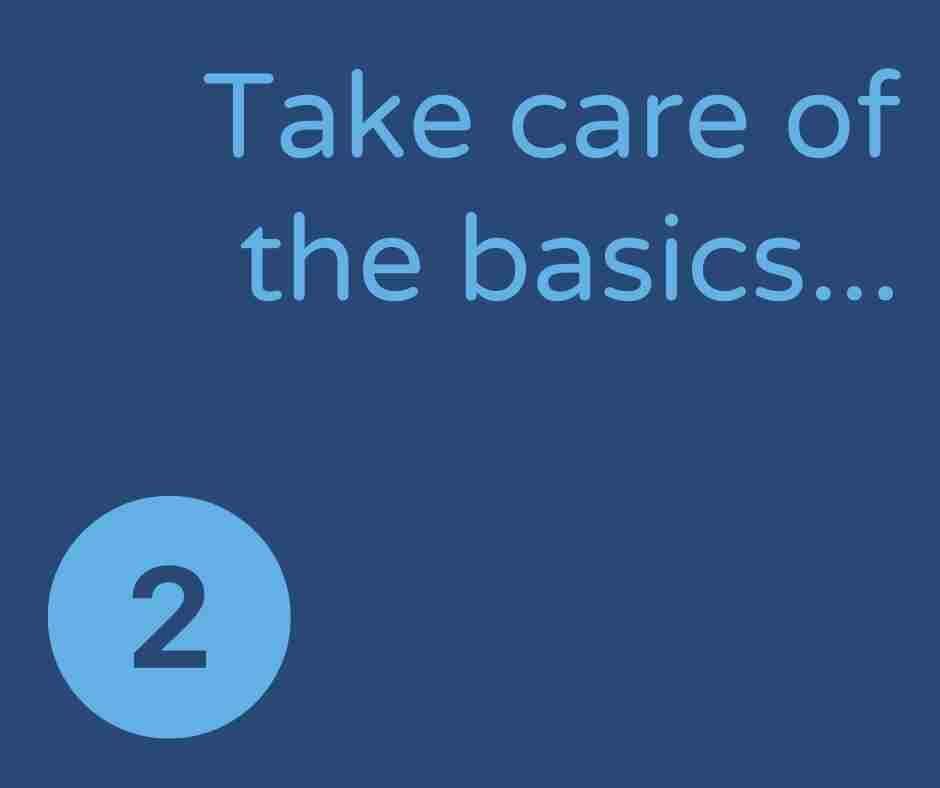

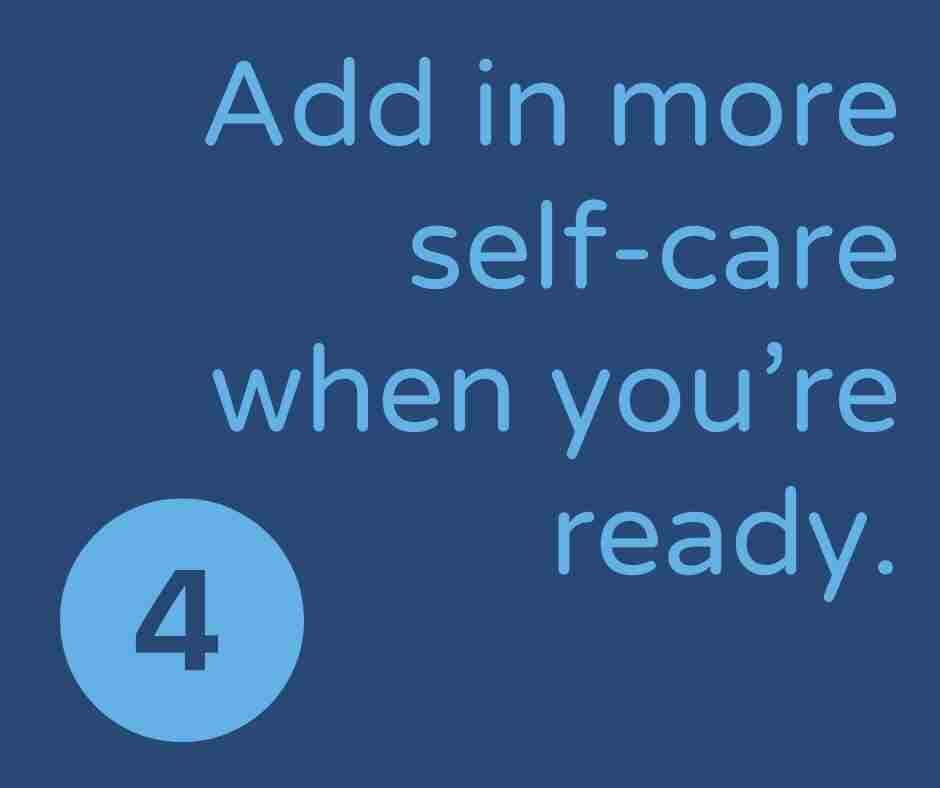
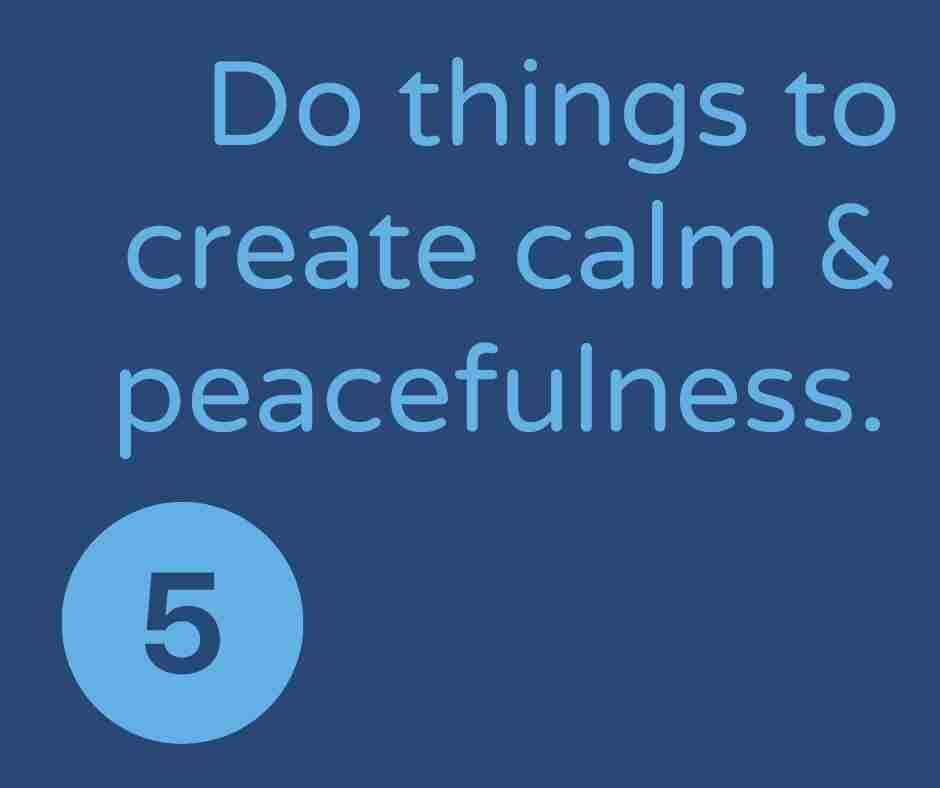
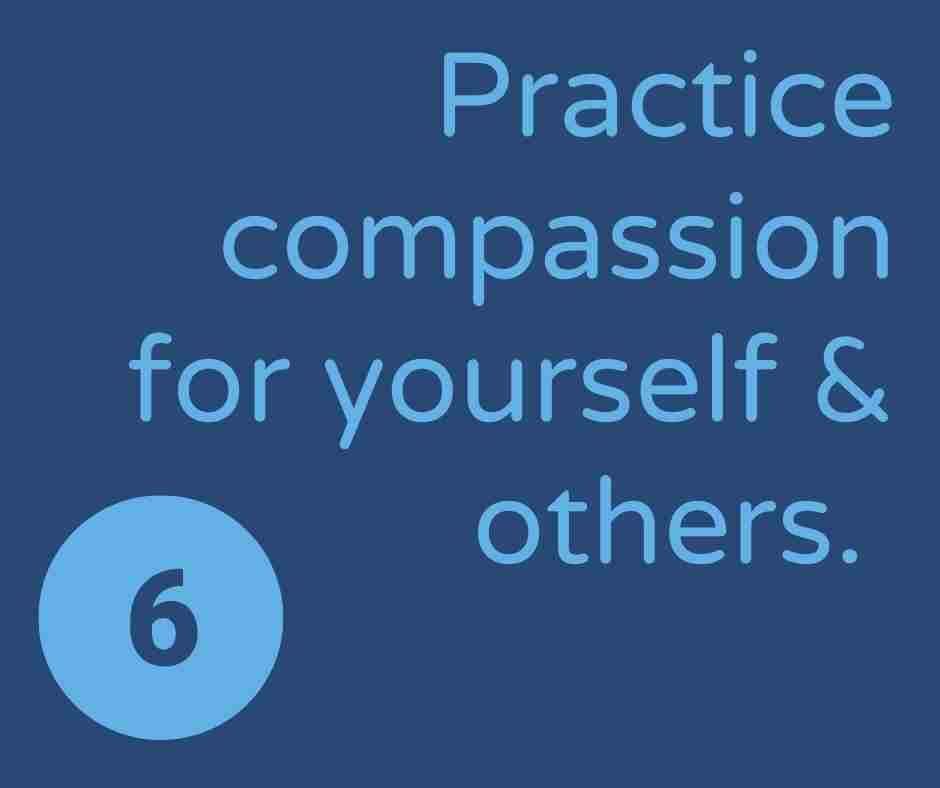
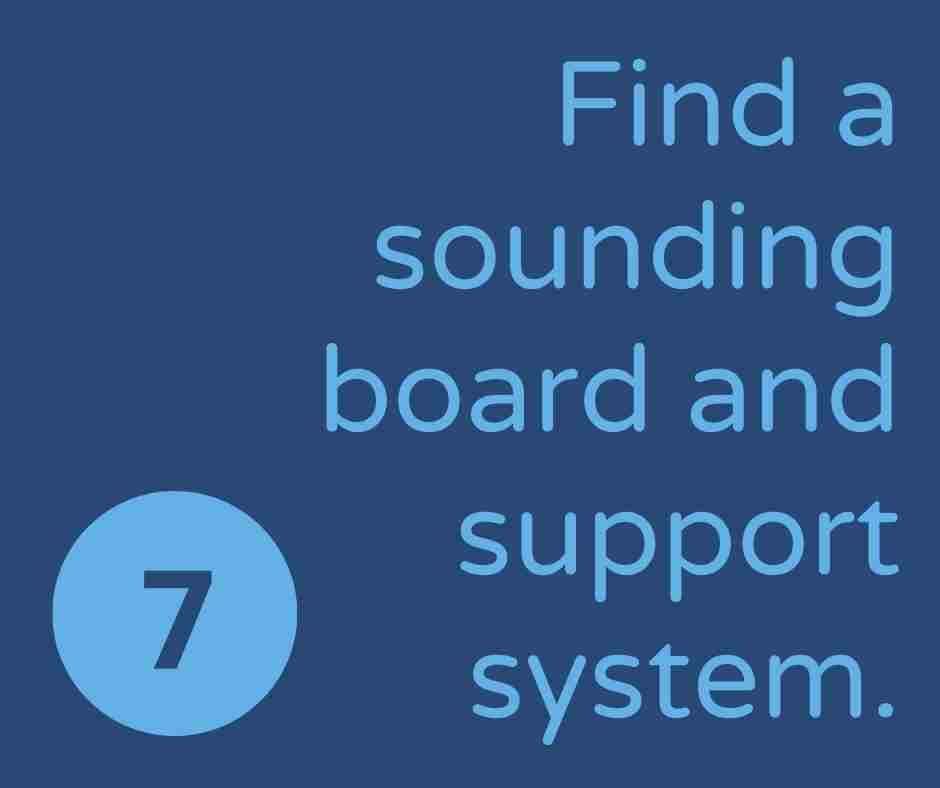
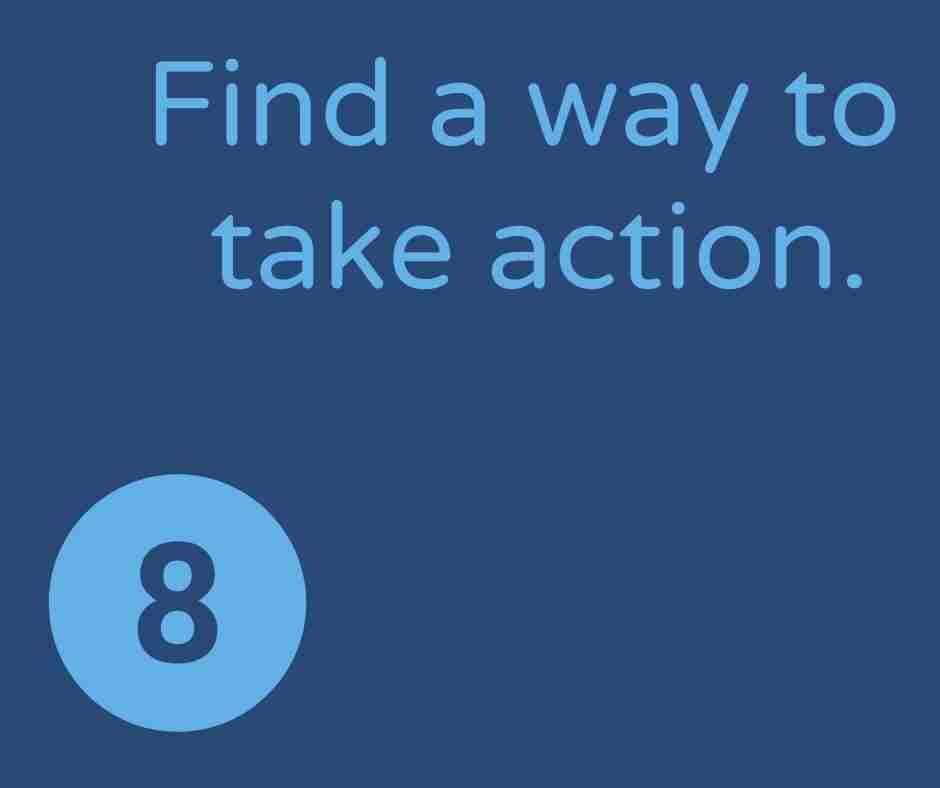
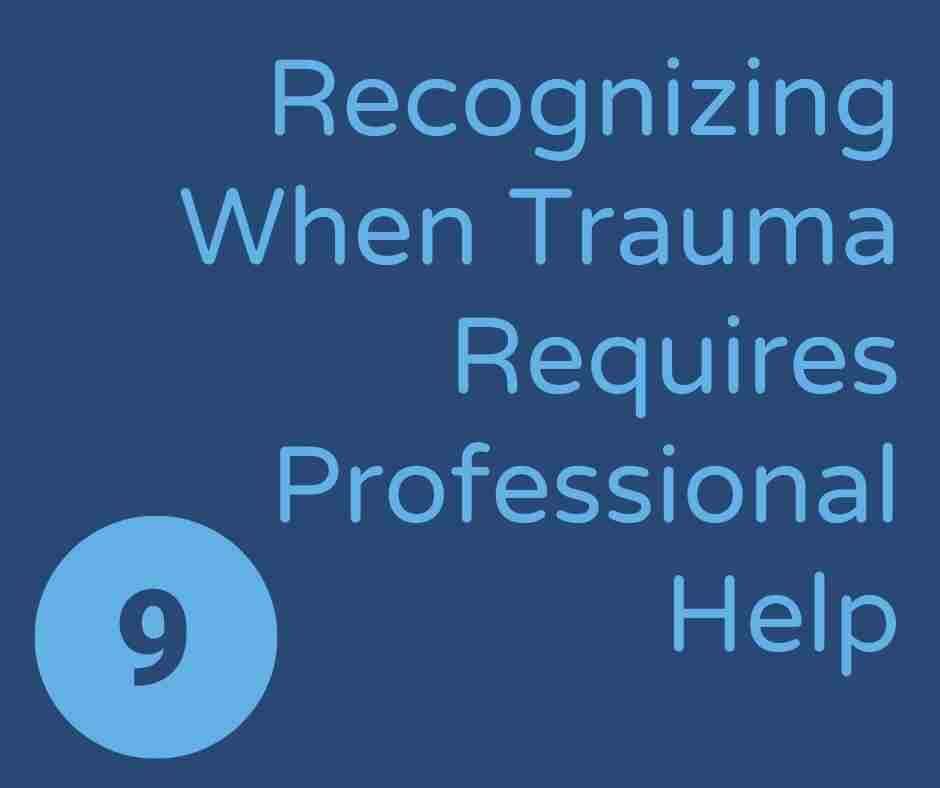

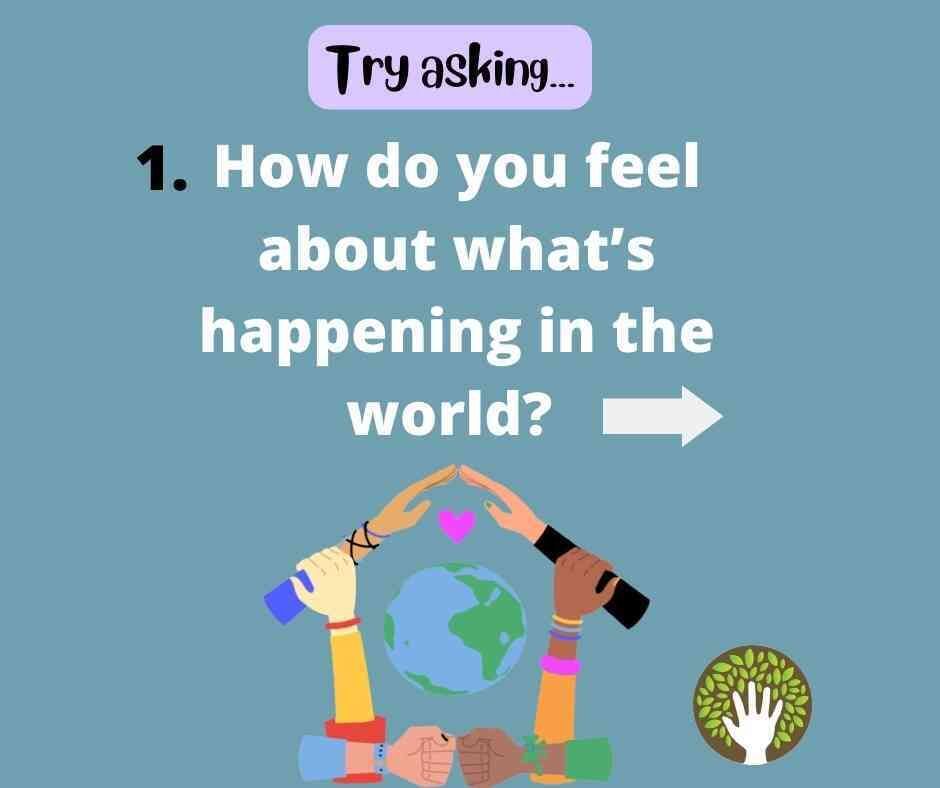

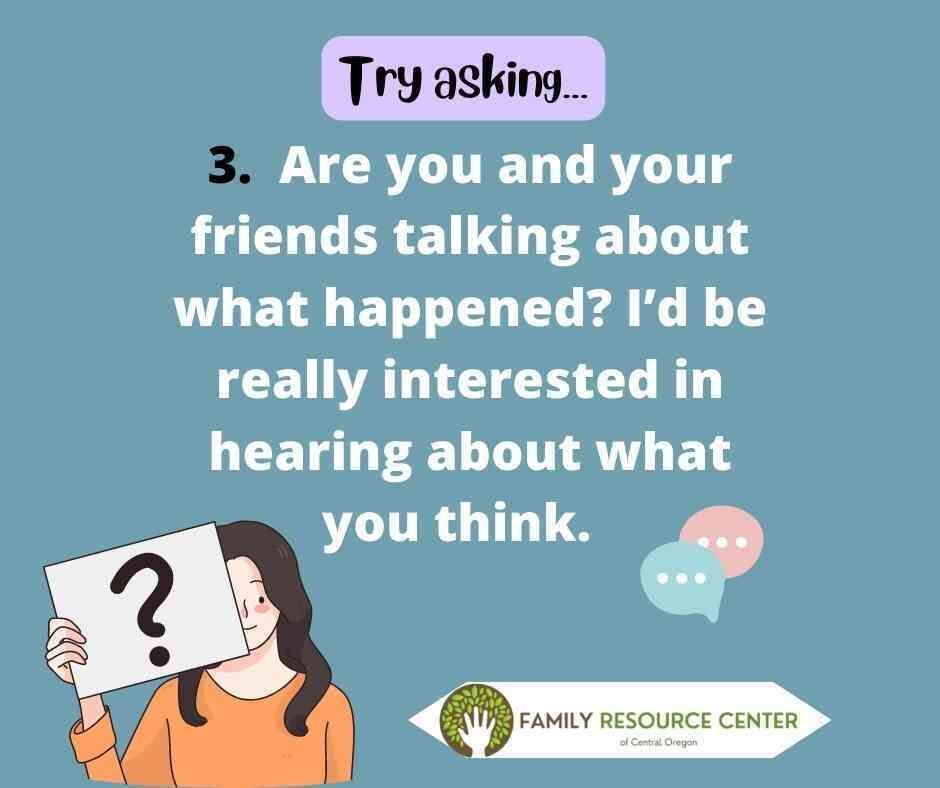
Tips for Coping with Traumatic Events
How to Talk to Your Child About Mass Shootings
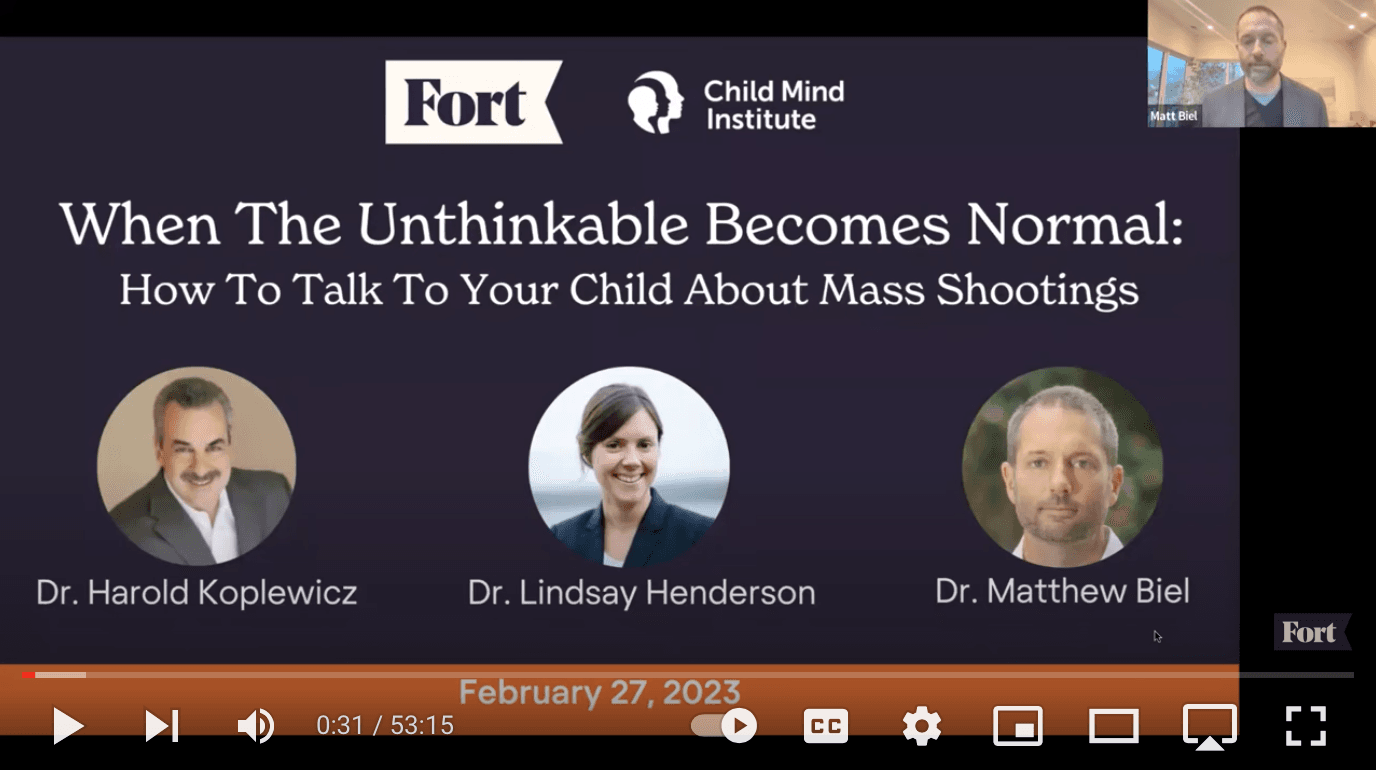
Local Central Oregon Parent Resources
Deschutes County
24-HOUR Crisis Phone Line
- Available 24/7 to anyone who is experiencing a crisis or needs crisis support.
- 541-322-7500 ext. 9
Walk-In Services: Deschutes County Stabilization Center
- Provides immediate access to a Master’s level therapist for individuals experiencing a crisis.
- Open to people of all ages, regardless of ability to pay, in a safe and confidential environment.
- No appointment necessary. Brief stabilization.
- 63311 NE Jamison Street, Bend, OR 97703
- (541) 585-7210- Office Line (Non-Emergency)
Crook County
- (541) 323-5330
- Behavioral/mental health provided by BestCare Treatment Services
Jefferson County
- (541) 475-6575
- Behavioral/mental health provided by BestCare Treatment Services
National Suicide Hotline
- “988” is the three-digit, nationwide phone number to connect directly to the 988 Suicide and Crisis Lifeline.
- You can text 988 too!
- The 988 Suicide and Crisis Lifeline provides 24/7, confidential support to people in suicidal crisis or mental health-related distress.
- Provides Support: People can also dial 988 if they are worried about a loved one who may need crisis support.
- Important Step: The 988 Suicide and Crisis Lifeline is an important step toward strengthening and transforming crisis care in this country. It serves as a universal entry point so that no matter where you live, you can reach a trained crisis counselor who can help.
- Help for Veterans: For calls, pressing “1” after dialing 988 will connect you directly to the Veterans Crisis Lifeline which serves our nation’s
- suicidepreventionlifeline.org
Drug & Alcohol Helpline
- 24/7 help line for individuals and family members seeking crisis intervention, treatment referral, and chemical-dependency information.
- (800) 923-4357
- Text: ‘RecoveryNow’ to 839863 (8:00am-11:00pm daily)
- linesforlife.org/alcohol-and-drug-helpline
Youthline
- A teen-to-teen crisis and helpline for youth and teens. Teens available to help daily from 4:00pm-10:00pm (off-hour calls are answered by the crisis line)
- (877) 968-8491
- Text: ‘teen2teen’ to 839863
- oregonyouthline.org
Tips for Coping with Trauma as a Parent
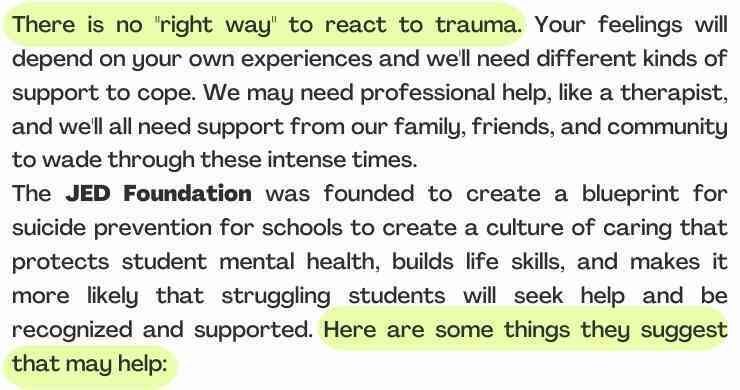
1. Give yourself time to feel and process your emotions.
There is no “right way” to react to trauma. You may feel angry, sad, guilty, have difficulty concentrating, or have flashbacks of previous trauma you’ve experienced. Or your emotions may be unpredictable. All of these reactions—and others—are valid. Let yourself feel what you’re feeling, and don’t judge yourself for it.
2. Take care of the basics.
Sticking to some kind of a routine can help you feel a sense of normalcy during stressful events. Eating regularly and getting good sleep are two key ways to do this.
3. But let go of unnecessary to-dos.
Lower your expectations of what you can manage and get done right now. It’s OK if your study or work routines need to change so you have time to rest and process what’s going on and your reaction to it.
4. Add in more self-care when you’re ready.
When your energy allows, put back in self-care routines like exercise and connecting with friends. They can help you start to feel grounded again.
5. Do things to create calm and peacefulness.
Trauma can increase levels of stress and anxiety, but research shows that pausing, taking a breath or a beat, and finding ways to create calm can help us cope with stressful situations. The Press Pause project, launched through in partnership with MTV and through Half of Us, uses breathing, movement, gratitude, and other tools to help you to decompress and regroup.
6. Practice compassion for yourself and others.
Being compassionate to others and yourself is a key way of getting through traumatic events together. That can take many forms including:
- Being gentle and respectful of others’ emotions and reactions even if you don’t understand them.
- Not judging yourself for how you are feeling or reacting.
- Participating in things that bring you happiness, pleasure, and a sense of normalcy.
7. Find a sounding board and support system.
It’s important to lean on friends and family to talk about what happened, what’s happening, or just to be there together when life feels hard. Often, the simple act of telling someone how we feel can support healing in powerful ways.
8. Find a way to take action.
For some of us, taking action helps us cope with trauma. If you were a part of the event—or are near to it—you might volunteer to support others in ways that feel meaningful, such as providing food, supplies, or transportation. Whether you were directly affected or not, lending a supportive ear to someone who needs it can be a powerful action. You can also connect with advocacy or support organizations in your area to find ways to take more action together.
9. Recognizing When Trauma Requires Professional Help
Not all people experience distressing events the same way. While the above tips can work for some people and some traumatic events, sometimes trauma is so acute or so profound that coping in any traditional sense is not likely without professional help.
Trauma can leave lasting negative effects on our functional, mental, physical, social, emotional, or spiritual well-being. Fortunately, while trauma can be long lasting and deeply impactful, there are ways to recognize it in ourselves and others in order to reduce the impact through understanding, adaptive coping, and professional support.
A mental health professional can help through talk therapy and other therapies, as well as with symptom management. In some cases, medication will be used to help people cope in the short and/or long-term. In cases where the after effects of trauma are intense or persistent, it’s important to consult with your primary care physician or psychiatrist.
If you’re experiencing any of the following, we encourage you to make an appointment with your doctor or a mental health professional:
- Trouble functioning at home, in school or at work
- Difficulty maintaining relationships
- Trouble concentrating
- Experiencing nightmares or flashbacks
- Poor sleep and eating habits
- Increased substance use
If you ever feel overwhelmed or don’t have anyone you can talk to, text START to 741741 or call 1-800-273-TALK (8255) for a confidential conversation with a trained counselor anytime.
More Resources
for talking to your child and family about mass shootings and violence including:
- Nine tips for talking to kids about trauma (Greater Good, Berkeley)
- 15 tips for talking with children about violence (Colorin Colorado; Multilingual tips provided)
- Talking to kids about violence: Tips for parents and teachers (National Association of School Psychologists; NASP)
- How to talk to kids about shootings (Common Sense Media)
- Empowering Young People in the Aftermath of Hate - What educators and family members can do (ADL - in English and en español)


